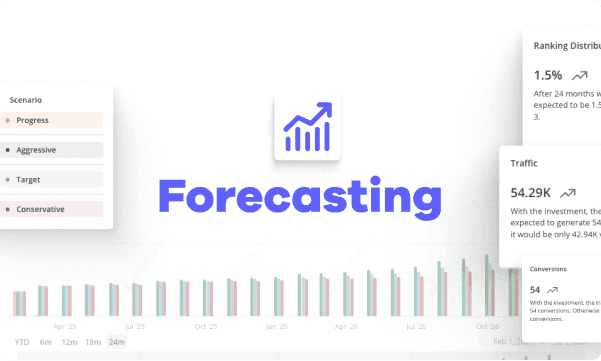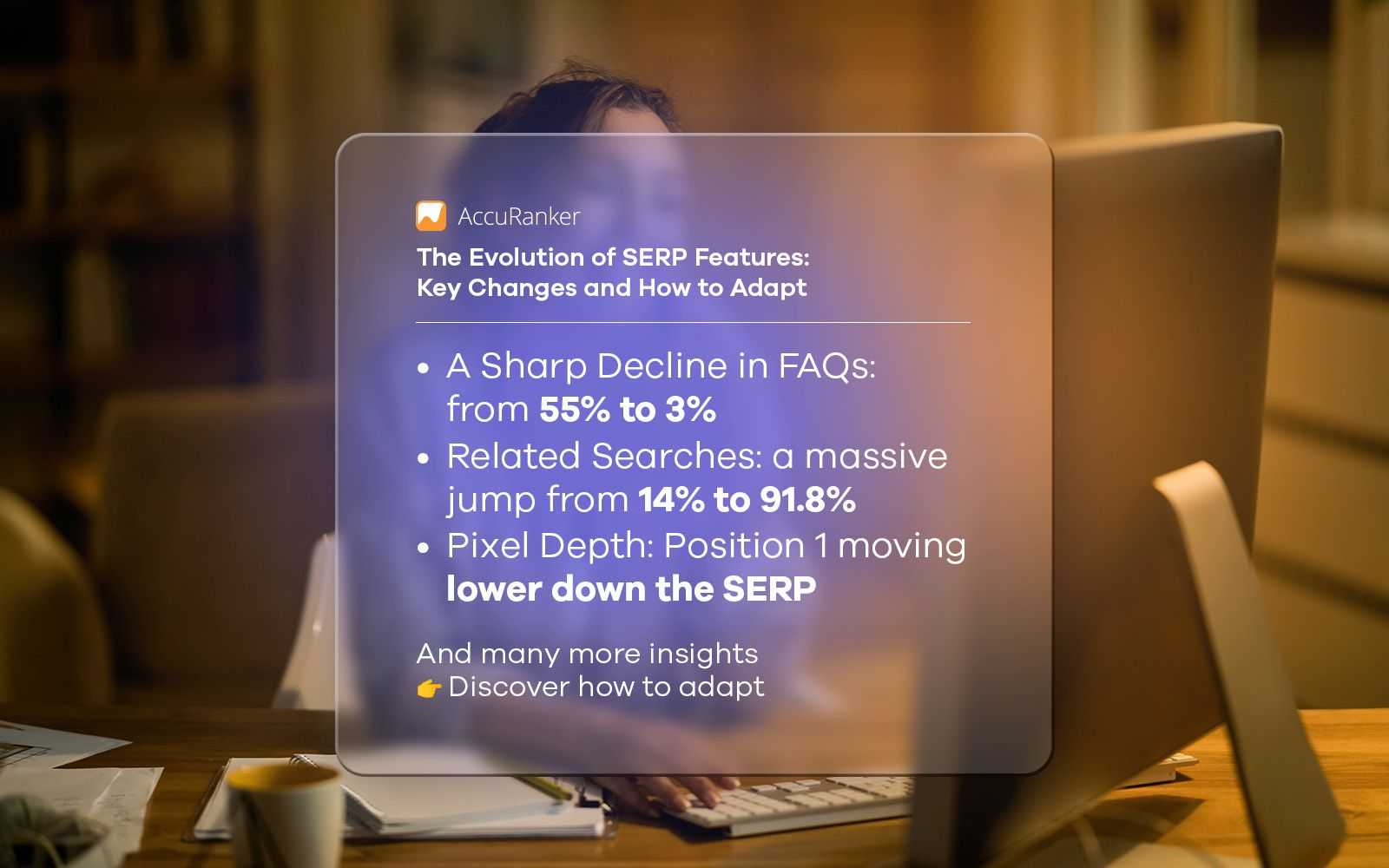Keyword Research: A Complete Guide for SEO
Last updated on Friday, February 3, 2023

Keyword research has been a cornerstone of SEO (search engine optimization) for almost three decades.
The idea behind it is quite simple: Create content based on what people are searching for in Google to boost your organic visibility and attract more qualified traffic to your site.
But effective keyword research is not as straightforward as picking the most popular terms related to your business and optimizing your pages accordingly. Instead, it calls for careful consideration of several factors, such as monthly search volume, keyword difficulty, and search intent.
This post will explain why thorough keyword research is the foundation of all successful SEO campaigns. We will also guide you on how to choose the right keywords for your website.
But first, a quick refresher on what we mean by keyword research.
What is Keyword Research?
Keyword research is the process of identifying which search terms you should target on your website so you can rank for them on Google.
The goal is to create a list of keywords people use when looking for products and information related to your brand. You can then optimize your pages for those terms to improve the likelihood of appearing in Google’s results when someone searches for them.
For example, if you run an online store selling hand-crafted jewelry, you might choose ‘handmade bracelets’ as the target keyword for your bracelets category page. In an ideal world, your page would show up whenever someone Googles that keyword.

Why is Keyword Research Important for SEO?
As we all know, Google’s business is built upon surfacing content that best answers its users’ queries.
But how does it determine whether a given piece of content matches a user’s search?
One of the main clues it uses is keywords. A page containing the keyword ‘handmade bracelets’ signals to Google that it may be a relevant result for anyone searching for ‘handmade bracelets.’
Conversely, a page that does not mention ‘handmade bracelets’ (or any similar term) gives Google no reason to rank it for that keyword.
In other words, you need to identify and implement keywords if you want Google to rank your content for relevant search queries.
Moreover, keyword research is essential for SEO because it allows you to do the following:
Create In-Demand Content
Keyword research lets you understand what type of content your target audience is looking for. This means you can develop a content strategy that caters to search demand instead of writing about topics your audience does not care about.
The more high-quality content you create that matches what people are searching for, the more your site will appear in search results and the more traffic you will receive.
Understand What Competitors Are Doing
Search engine results pages (SERPs) are often highly competitive environments, particularly when it comes to keywords with high search demand.
Keyword research lets you evaluate the search landscape so you can gauge the difficulty of ranking for a given term. If several high-profile, authoritative sites are already ranking for a keyword you have in mind, you are probably better off targeting something less competitive.
Indeed, a great benefit of thorough keyword research is it lets you prioritize terms with (relatively) untapped potential. Once you start ranking for multiple low-competition keywords, your site’s authority will gradually improve, allowing you to compete for more ambitious keywords.
Prioritize Search Intent During Keyword Research
Google does not simply serve a user with results that happen to contain the same keyword as their query. Instead, it works to serve content that best satisfies the search intent behind the query. The closer your content matches the search intent behind a query, the likelier it is to rank.
Search intent is another way of referring to the problem a user wants to solve when they search for something on Google. For example, are they looking to make a purchase, find information, or navigate to a specific page?
Since Google favors intent-optimized content, you can figure out the search intent for a given keyword by examining its top-ranking results. Understanding this intent will allow you to craft a piece of content with much greater ranking potential.

How to Do Keyword Research Effectively
Now let us look at how you should approach finding the right keywords to target.
The following tips will help give your keyword strategy the best chance of success.
Clarify Your SEO Goals
You need to establish some clear goals for your SEO campaign before developing your keyword list. Doing so will ensure your keyword strategy is tailored to the outcomes you want to achieve.
Here are some questions to think about:
- What are your business objectives, and how can SEO help with them?
- Which brand values do you want your content to convey?
- What differentiates your business from competitors?
- Who is your target audience, and what do they care about?
Brainstorm Topic Ideas for Keyword Research
The next step is to create a thorough list of topics related to your business that interest your target audience.
You probably already have a good sense of what these topics will be. But for extra inspiration, consider the following:
- What content has performed best for you in the past?
- What topics do your competitors cover?
- What questions or problems do your audience members discuss on social media?
Build a Keyword List
The next step is to find out what people are searching for about your topics.
Using a premium keyword research tool is the fastest way to collect multiple topically related keywords. But if you do not have access to this type of software, a great alternative is to use Google itself.
Once you start typing into the search bar, Google automatically provides some suggested searches.

Similarly, Google lists a selection of related searches at the bottom of the results page.

Add the keywords from both sources to your list and repeat the process across all your topic areas.
Your list should include a combination of somewhat generic terms (like ‘handmade bracelets’) and more specific, long-tail keywords (like ‘handmade personalized bracelets for him’).
Adding a ‘search intent’ column to your keyword list is also a good idea. The entries in this column should briefly describe what users expect to find when they search that keyword.
Prioritize Your Keywords
Once you have built an initial list, you will need to gather the average monthly search volumes for each keyword. This information is essential for deciding which keywords to prioritize since higher search volumes equate to more traffic.
You will also need to quantify the ranking difficulty for each keyword to know which ones make the most sense to target.
There are tools that can help you do this. But you can estimate keyword difficulty by manually checking the SERPs yourself. If the top-ranking results for a given keyword are exclusively prestigious websites, it is safe to say that the keyword’s difficulty is significant.
Once you have collected search volume and difficulty data, you can decide which keywords to target first. As a rule, the keywords likely to yield the best results will be those with a relatively high search volume and low-ranking difficulty.

Applying and Tracking Your Keywords
Keyword research is only half the battle when it comes to your keyword strategy. You also need to implement these keywords and track their performance in the SERPs.
Here are some points to remember when putting your keyword strategy into action.
Commit to Content Quality
The surest way to maximize your ability to rank for a given keyword is to create the best piece of content around.
That means ensuring your content thoroughly satisfies the user’s search intent. The trick is to ensure your piece covers everything the current top-ranking content covers and more. The more value you can bring to the reader, the better.
Optimize Your Pages
Virtually every page on your site should target a specific keyword. This keyword (and its variants) should appear in the page’s URL, title tag, header tag, meta description, and throughout the body copy.
Just be careful not to shoehorn your keyword into every other sentence. Keyword stuffing is spammy, diminishes the reading experience, and can damage your rankings.
Monitor Your Rankings
Naturally, you will want to know how well your newly optimized pages rank for your target keywords over time.
Doing so will help you identify potential problems with your strategy so you can course-correct and improve results.
The good news is AccuRanker has the perfect tool for the job. You can monitor your keywords with daily updates and keep track of how they are performing in any location around the world.
Final Thoughts on Keyword Research
Keyword research is an integral part of the SEO process. It tells you what type of information your audience is seeking so you can tailor your content to their needs and attract more traffic.
But finding the right keywords for your business is no simple task. First, you need to identify topics that align with your business goals, brand values, and audience interests. Then, you need to collect keyword variations, search volumes, and difficulty data to determine which keywords you should target first.
And finally, once you optimize your site and create content for your new keywords, you will need to monitor their performance with a SERP rank tracker.
It is now time to implement this advice so you can benefit from better keyword optimization!
Start increasing organic traffic with AccuRanker today.

Article by:
Bo Ekkelund
Chief Marketing Officer at AccuRanker
As the Chief Marketing Officer at AccuRanker, Bo is responsible for all aspects of AccuRanker’s marketing - including outlining and implementing the company’s worldwide marketing strategy and branding. A marketing senior with more than 20 years of software marketing experience, Bo has both firsthand and strategic experience with all major marketing tactics and technologies.


